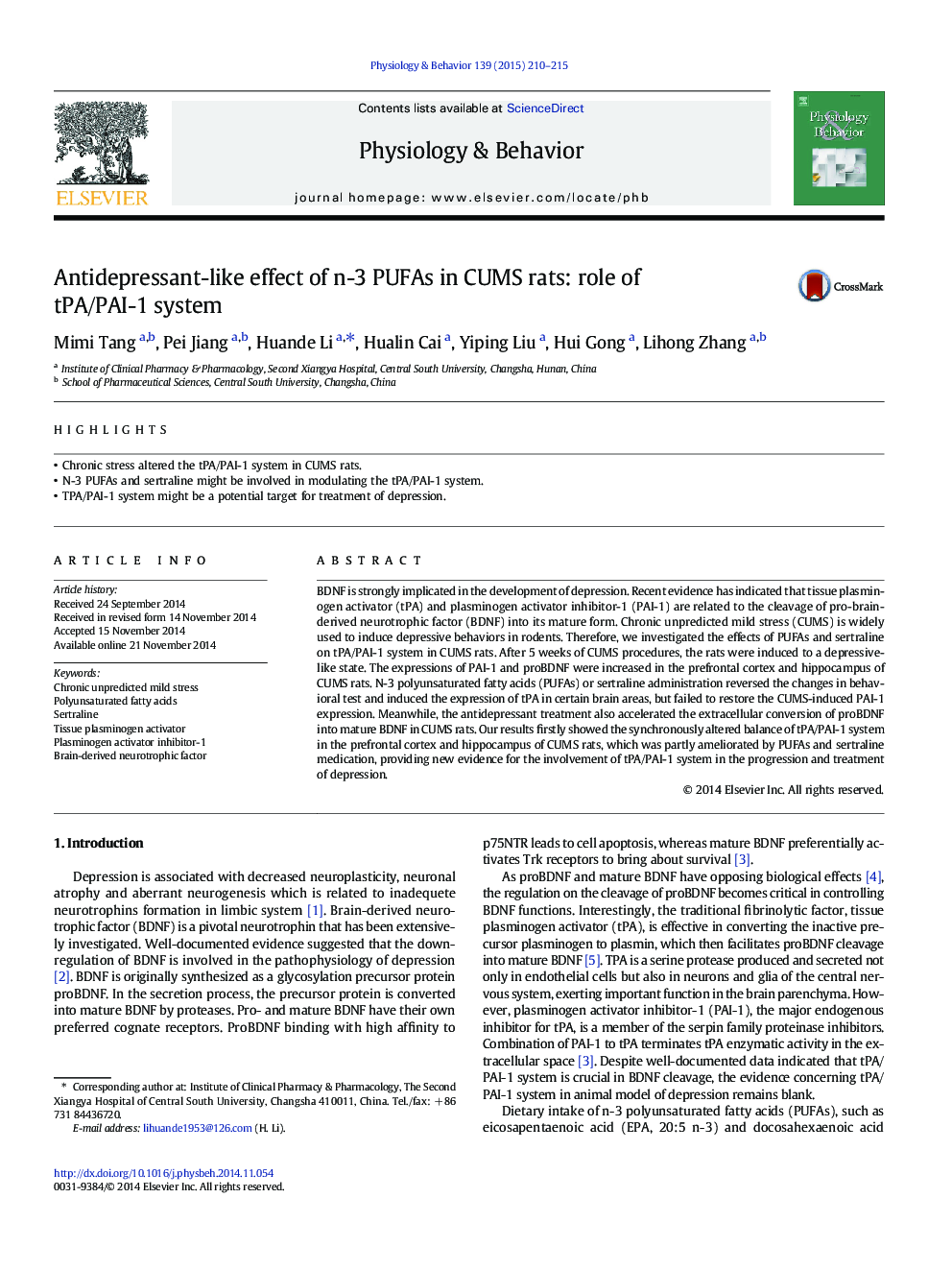| Article ID | Journal | Published Year | Pages | File Type |
|---|---|---|---|---|
| 5923925 | Physiology & Behavior | 2015 | 6 Pages |
â¢Chronic stress altered the tPA/PAI-1 system in CUMS rats.â¢N-3 PUFAs and sertraline might be involved in modulating the tPA/PAI-1 system.â¢TPA/PAI-1 system might be a potential target for treatment of depression.
BDNF is strongly implicated in the development of depression. Recent evidence has indicated that tissue plasminogen activator (tPA) and plasminogen activator inhibitor-1 (PAI-1) are related to the cleavage of pro-brain-derived neurotrophic factor (BDNF) into its mature form. Chronic unpredicted mild stress (CUMS) is widely used to induce depressive behaviors in rodents. Therefore, we investigated the effects of PUFAs and sertraline on tPA/PAI-1 system in CUMS rats. After 5Â weeks of CUMS procedures, the rats were induced to a depressive-like state. The expressions of PAI-1 and proBDNF were increased in the prefrontal cortex and hippocampus of CUMS rats. N-3 polyunsaturated fatty acids (PUFAs) or sertraline administration reversed the changes in behavioral test and induced the expression of tPA in certain brain areas, but failed to restore the CUMS-induced PAI-1 expression. Meanwhile, the antidepressant treatment also accelerated the extracellular conversion of proBDNF into mature BDNF in CUMS rats. Our results firstly showed the synchronously altered balance of tPA/PAI-1 system in the prefrontal cortex and hippocampus of CUMS rats, which was partly ameliorated by PUFAs and sertraline medication, providing new evidence for the involvement of tPA/PAI-1 system in the progression and treatment of depression.
